Coffee is an important ritual that’s much more than a simple energy booster – it can awaken the mind, calm the senses, and stir the body. Even though just recently discovered, antioxidants have been in our cups all along, quietly helping our bodies fight against harmful molecules. Indeed, coffee is more than a caffeine rush; it’s an elixir that can contribute to our overall wellness. But what are coffee antioxidants? How do they work? And how much of them are in our morning brew?
After reading this article, you’ll know a whole lot more about antioxidants, and you’ll have another good reason to justify your coffee addiction. Alright, pour yourself another cup of java, take a sip, sit back, and let’s dive in!
What are Antioxidants?
Your body is under constant attack from malicious substances that are plotting to slow you down. One of those pesky substances – free radicals – are unstable molecules associated with human diseases and aging. Free radicals are the waste from chemical processes that, when built up, can cause severe damage to your cells. But have no fear; antioxidants know how to spot these party poopers and keep them in check.
Antioxidants are extraordinary, and here’s why: they are natural processes that work to clean up free radicals; just like your kidneys clean up waste products in your blood, antioxidants clean up free radicals in your body.
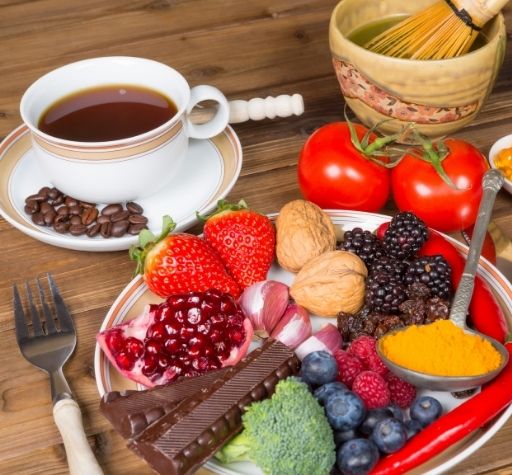
Your body has its own antioxidant defenses to keep free radicals from running amok, but that’s not enough. You get most of your antioxidants from whole foods like vegetables, fruits, nuts, whole grains, and beverages like tea, juice, and of course, COFFEE.
Why Are Antioxidants Important?
So far, we’ve identified that free radicals are the “bad guys” while antioxidants are the “good guys.” Yet, not all free radicals are bad for your body – they are invaluable when you need to fight off bacteria and infections. But having too many free radicals can lead to a state called oxidative stress, which can lead to cell and tissue damage.
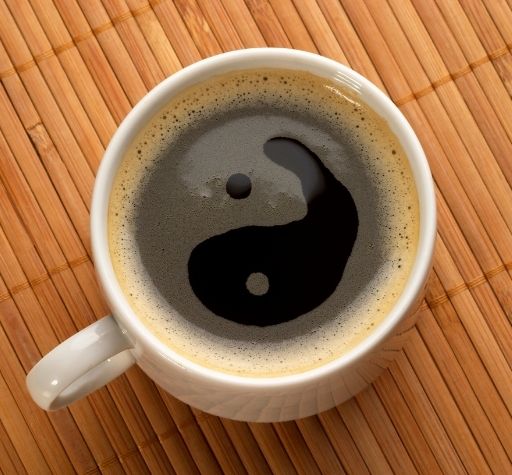
So, the battle between free radicals and antioxidants must always end in a stalemate. If free radicals are the Yin, antioxidants are surely the Yang of this dynamic duality. In short, the importance of antioxidants is linked to keeping the optimal balance between free radicals and antioxidants.
How Do Antioxidants Work?
Now that we know what antioxidants are and their importance, let’s look at how they behave in your body. In simple terms, free radicals, which are naturally formed by your body and found in pollution, tobacco, alcohol, medicine, food, and more, are unstable molecules that seek electrons. They stroll about in your body, stealing electrons from healthy cells. When free radicals steal electrons from cells, the cells are severely damaged. (1)

Antioxidants, on the other hand, are electron donors. They patrol your body on the lookout for electron-seeking free radicals. Once an antioxidant spots a free radical, it will give electrons to the free radical, stabilize it, and thus keep it away from your healthy cells. In short, antioxidants quench free radicals’ thirst for your tasty cells’ electrons. (2)
Does Coffee Have Antioxidants?
When it comes to antioxidants, coffee is truly a treasure trove of the stuff. Studies have shown that a large number of Americans get the majority of their antioxidants from coffee. (3) While there are many types of antioxidants in every cup of joe, hydrocinnamic acids and polyphenols are the two most abundant antioxidants in coffee. The former is known to neutralize free radicals, and the latter is said to potentially prevent heart diseases, cancer, and type 2 diabetes. (4)

Other antioxidants found in coffee like chlorogenic acid, ferulic acid, and caffeic acid are understood to lower blood sugar, improve mood, and combat inflammation. That said, your morning go juice does a lot more than give you a jolt of energy; it helps your body fight off free radicals and protects your body from serious ailments. (5)
Does Decaf Coffee Have Antioxidants?
Decaffeination is a process in which fresh coffee beans are washed with organic solvents or carbon dioxide to remove about 97% of the caffeine. The decaffeination process does remove some antioxidants, making decaf less beneficial than regular coffee. Still, decaf isn’t void of the stuff and is still considered a great source of antioxidants. That said, decaf coffee is still coffee, but with less caffeine and fewer antioxidants.
Coffee vs. Green Tea: Which one is better?
While coffee is, no doubt, worthy of the gods, green tea is undoubtedly just as godly. Debating which one is better is futile; besides, I’m far too hooked on java to have an unbiased opinion on this debate. So, to keep it completely impartial, I’ll solely look at the antioxidant content of the two drinks. The most “accurate” way to do that is to use the Oxygen Radical Absorption Capacity ranking system (ORAC), which can approximately measure the antioxidant capacities of various foods and beverages.
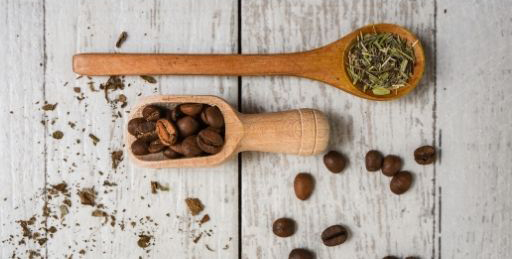
To keep things fair, I must warn you that the USDA dropped ORAC in 2012 because they deemed it inaccurate in measuring antioxidant capacity. (6) Alas, we have no better way to measure antioxidants at the time of writing this article, so ORAC will have to suffice, but we’ll take it with a grain of salt.
So, how do the two measure up, cup to cup? According to the ORAC system, green tea contains 1,864 units per 100g, and coffee has 2,780 units per 100g. If we trust the ORAC system, coffee is richer in antioxidants. Continuing with this figure, we can also deduce that a cup of coffee is much more antioxidant-filled, considering the amount of product needed to make a cup. It takes an average of 10g of ground coffee to make a cup of joe, while 2g of leaves is necessary to make a cup of tea. Therefore, coffee must contain more antioxidants per cup, given that each cup requires more of the product.
Conclusion
Antioxidants are critical to your well-being. They are responsible for keeping disease-causing molecules from damaging your cells and tissues. Coffee contains tons of antioxidants that can reduce the risk of dangerous diseases. This doesn’t mean you should up your intake tenfold – remember that balance is everything – but it should make you feel better about having one more cup without feeling guilty. With that said, sip away and remember that those antioxidants are taking good care of you.
About the Author

Alex Rezgui – A spunky French-born American, Alex has embraced the nomadic lifestyle for over a decade. He’s a freelance writer who likes to move to a funky beat. Coffee is his fuel, passion his motivator, and rhythm his language. He’s a sucker for the smell of old books, jazzy tunes, and a proper cup of jitter juice. Reach him on LinkedIn!
IF YOU’VE ENJOYED THIS ARTICLE, GIVE IT A PIN!

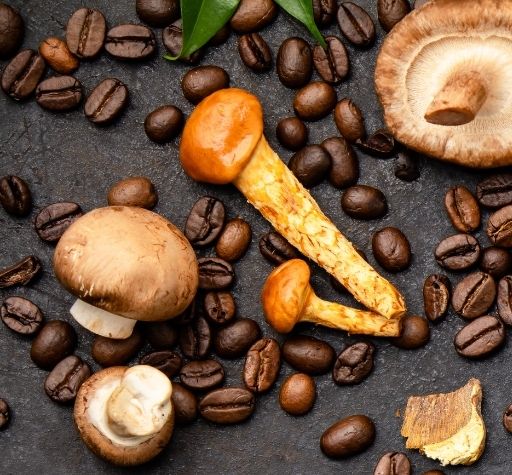






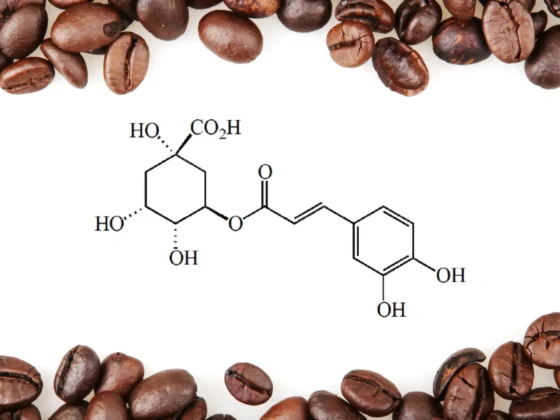


2 comments
Comments are closed.